However much motoring journalists might wish that they did, car buyers tend not to think in straight lines.
They don’t organise cars into nebulous classes and categories, then restrict their trawl only to those that populate the most relevant resulting constituency. Recently I had a conversation with someone agonising over whether to buy a Porsche 911 or a supercharged Range Rover Sport, and another with someone wondering if their life would be spiced more by a Ferrari 488 GTB or a light aircraft. Indeed, the only thing likely to be common to all candidates on any shopping list is that whatever is bought must fit within a fixed budget.
So perhaps we should not be so surprised to see these two sharing page space here. Conceptually, the Honda Civic Type R and Abarth 124 Spider might seem to occupy as much common ground as Corbyn and Trump, but both exist primarily for the provision of driving pleasure and either can be yours for within a grand of £30,000. Ergo, they are rivals.
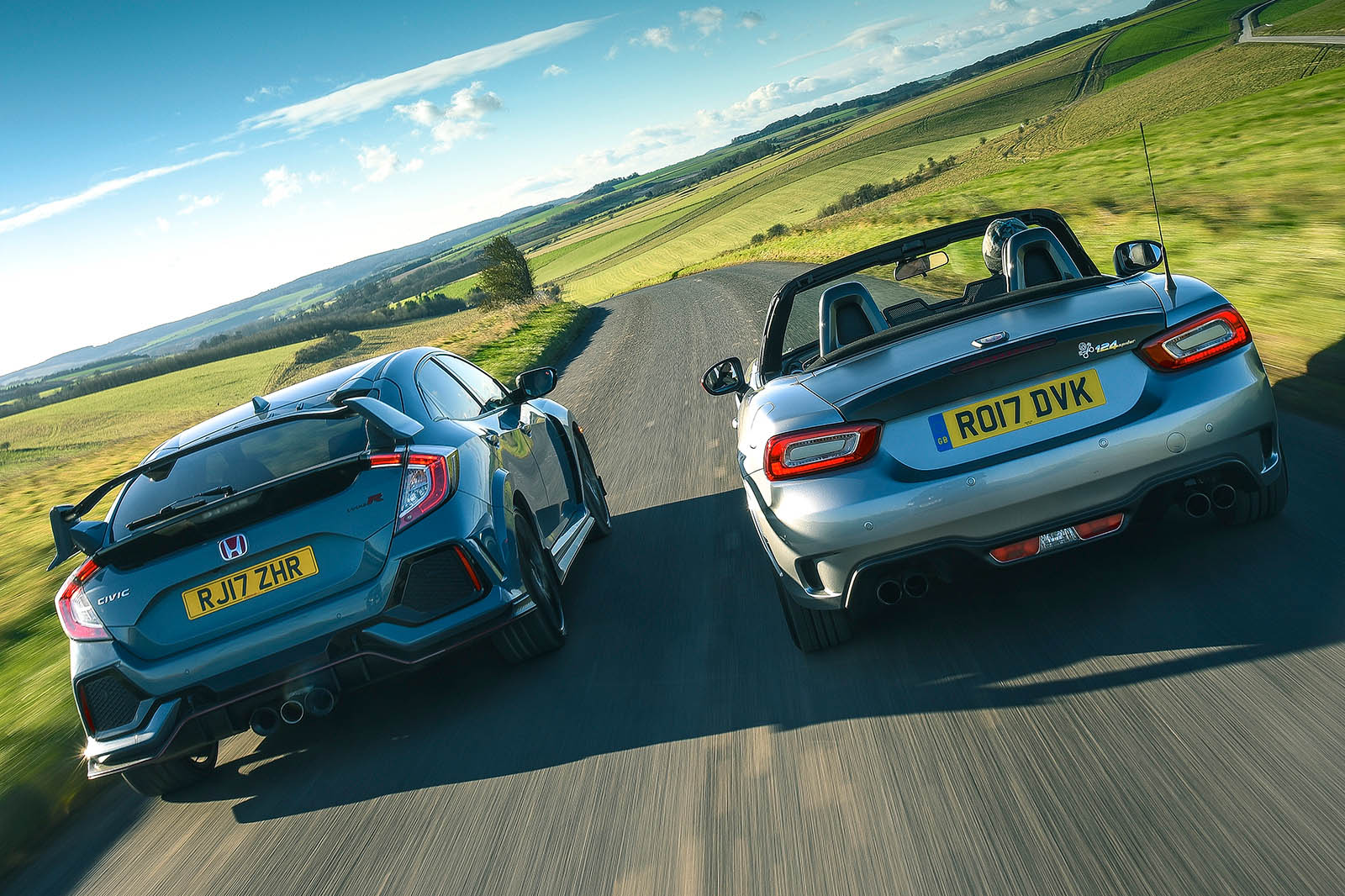
The appeal of this contest is that before they even met I could see exactly why the Civic was going to murder the Abarth. And vice versa. The Honda Civic is wildly quicker and has breathtaking handling for a front-drive hatch, yet it will seat five at a push and has an enormous boot. Of course it’s the better car. Except that when it comes to the provision of pure driving pleasure, it’s not what’s on paper that counts but the road.
And what hope could a fundamentally unbalanced car with incorrect-wheel drive and which is derived from something designed for shopping and the school run have against a super- light, two-seat, rear-drive roadster like the Abarth? Not much, it seemed.
I travelled to the meeting point by Civic, marvelling aga the job Honda has done on this car while wondering once more why it had taken so many stabs at it before rediscovering the brilliance of the original Type Rs.
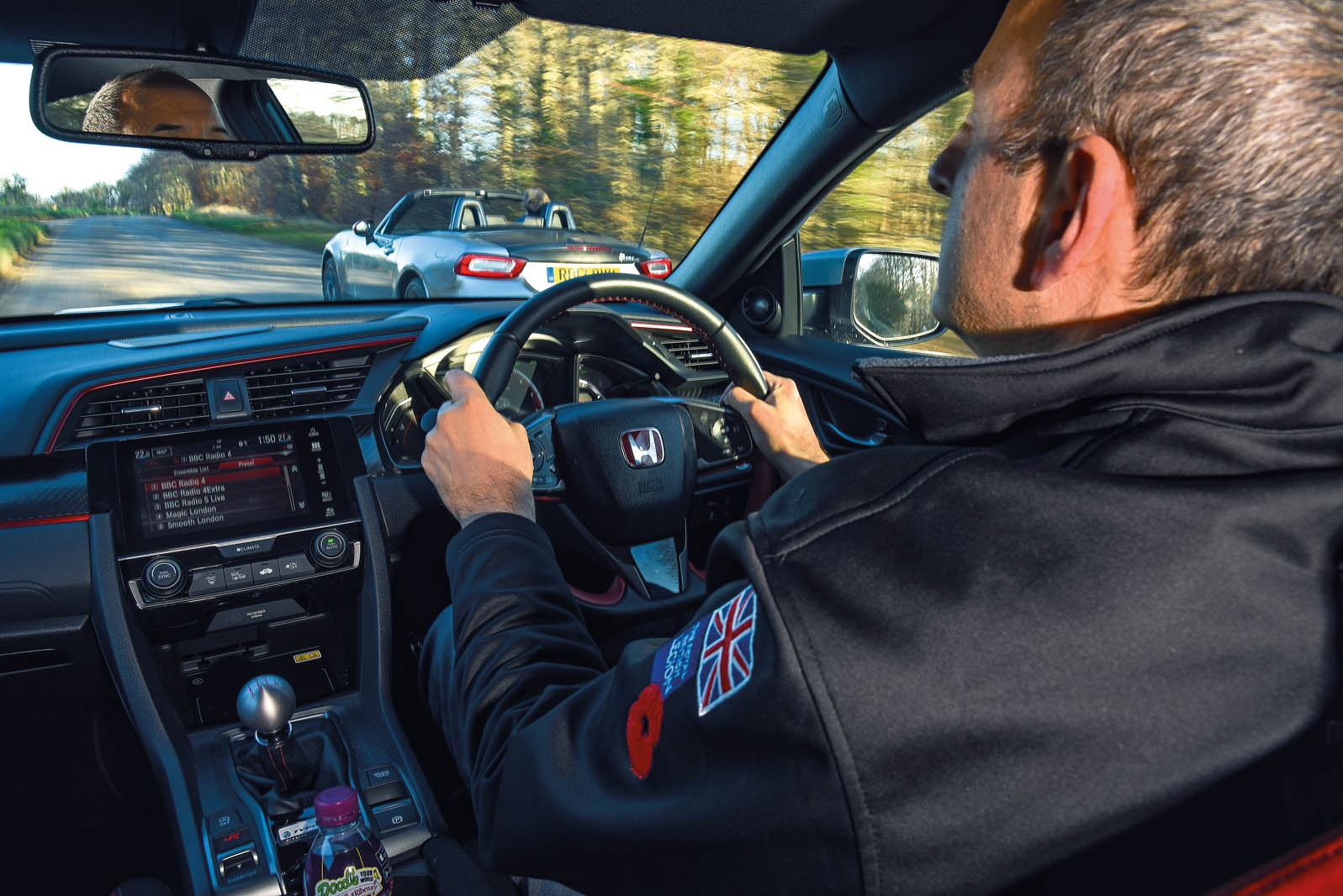

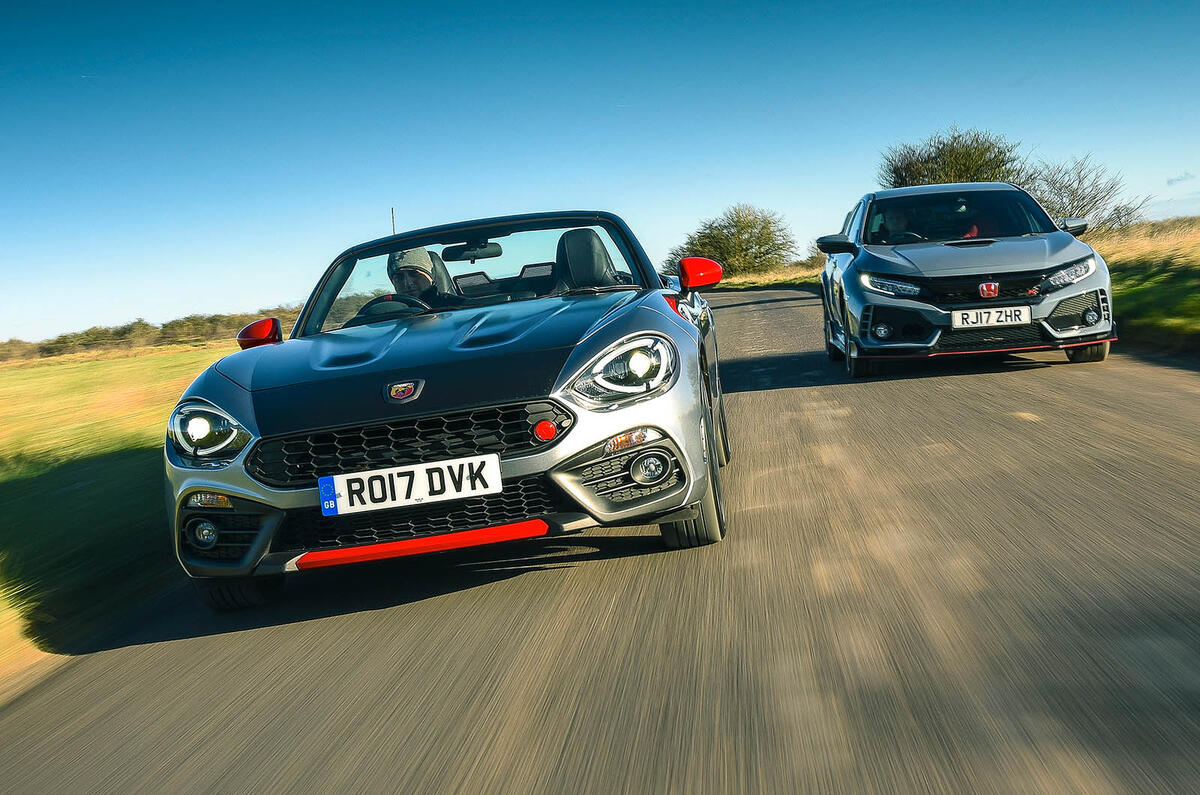
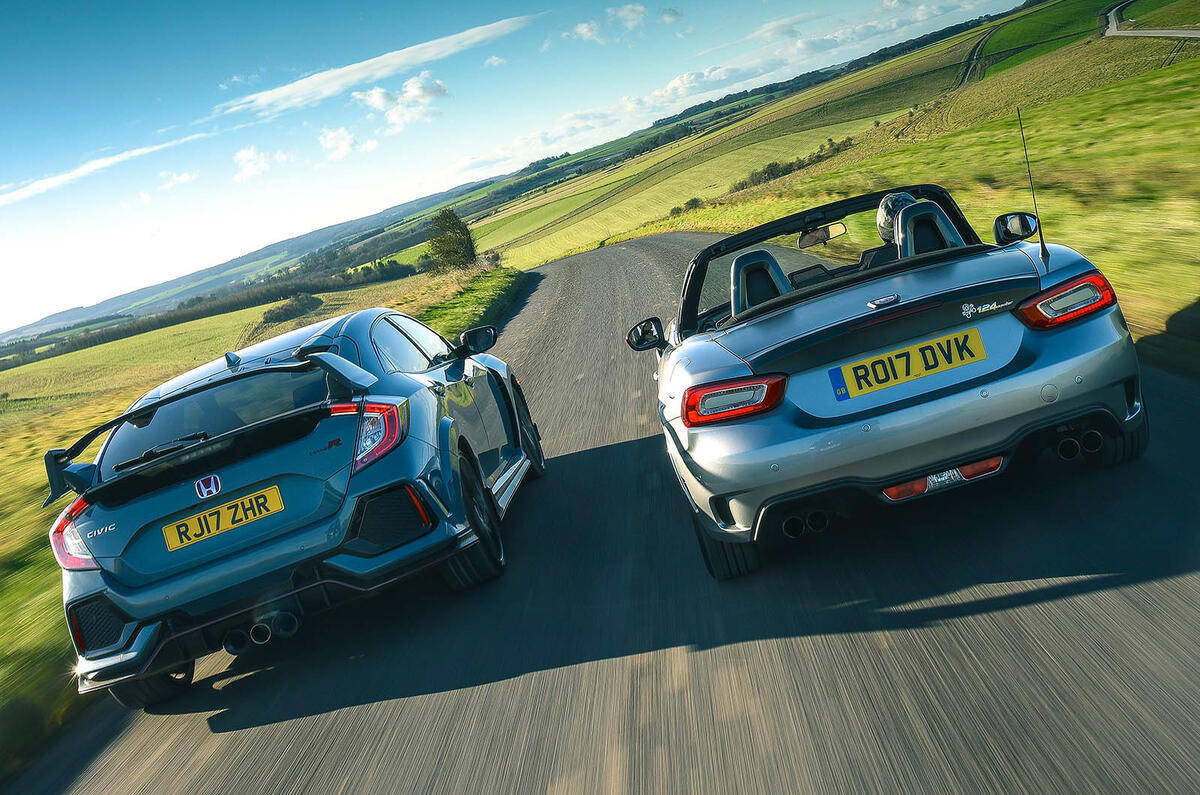
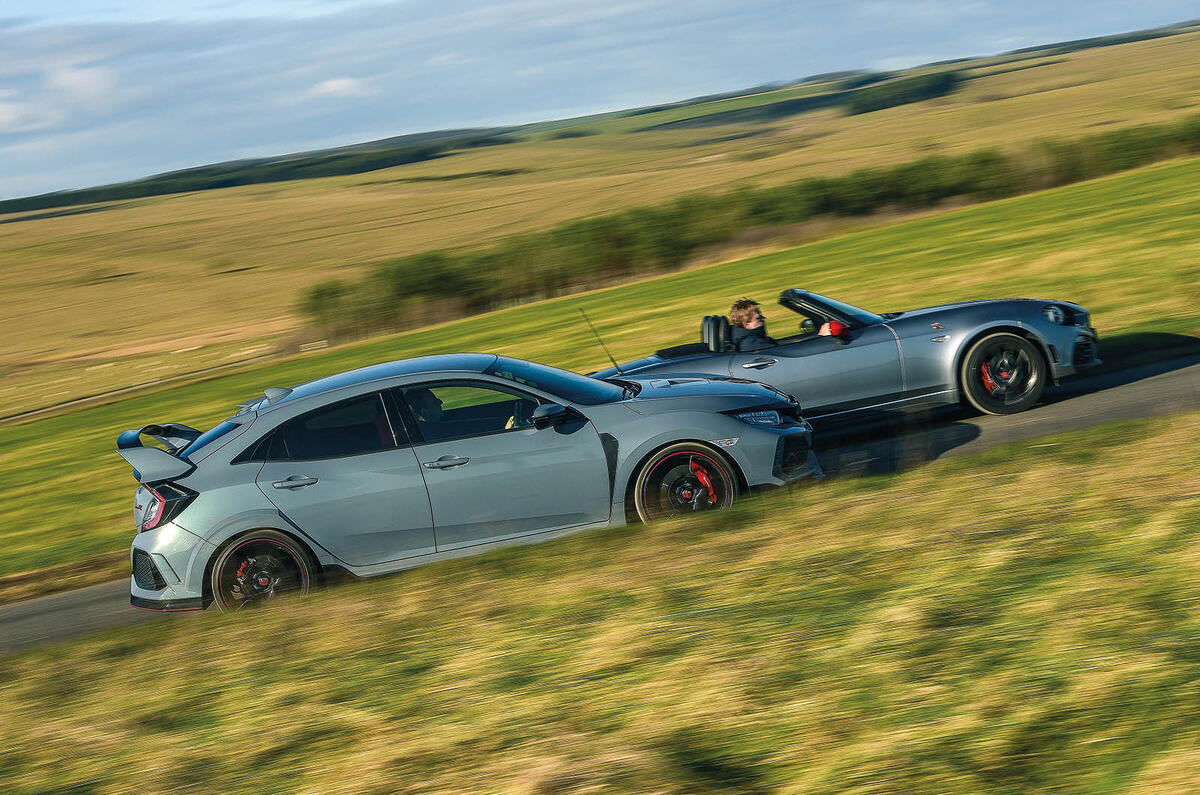
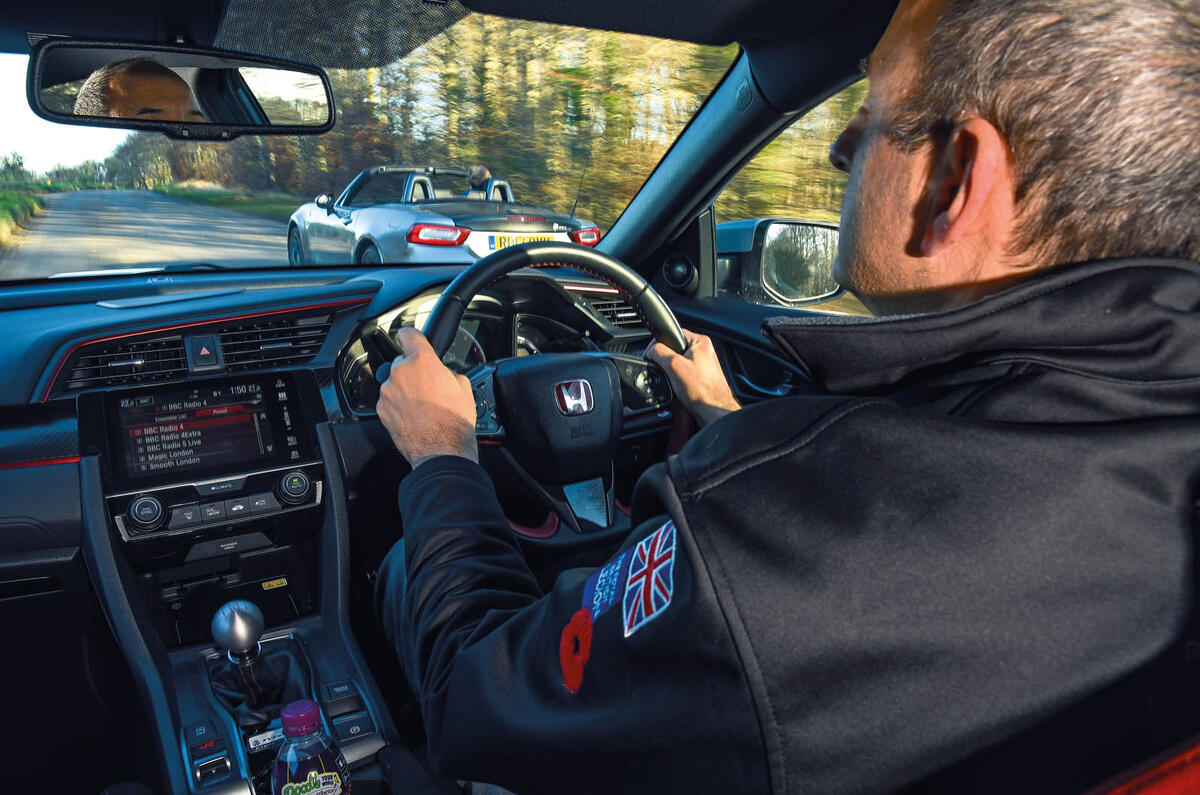
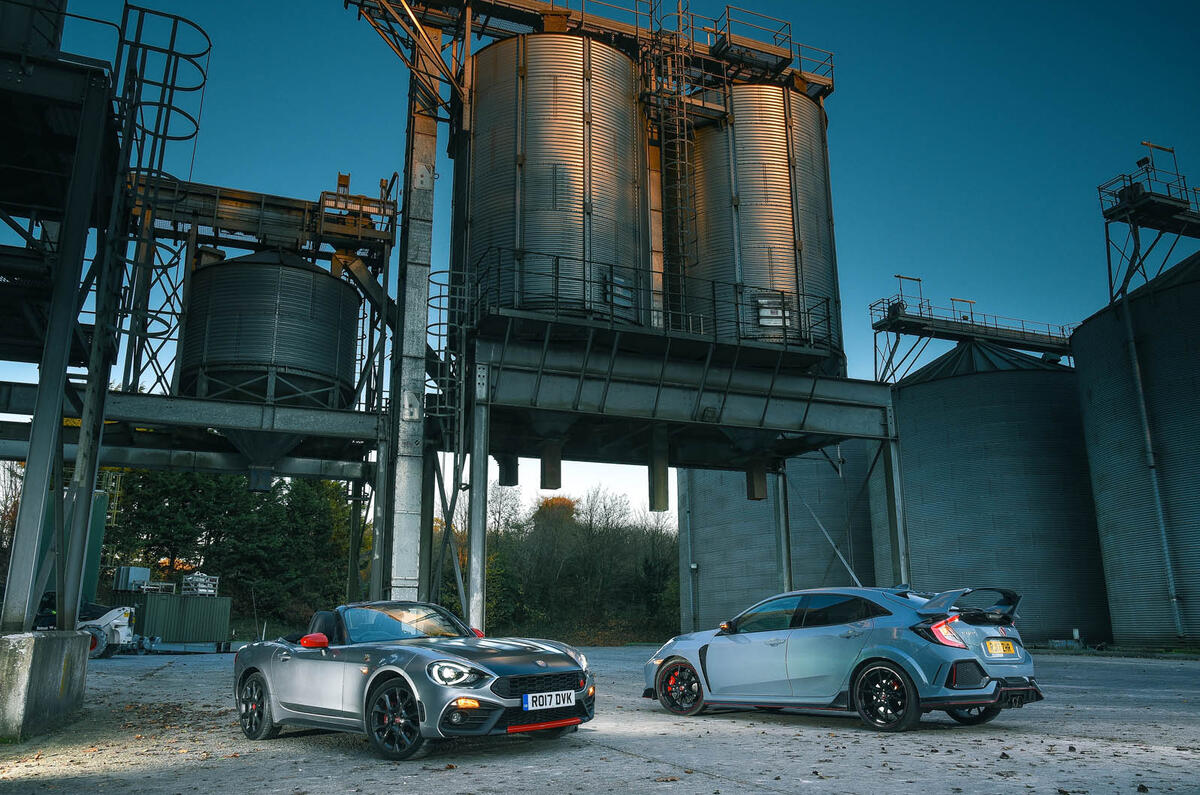
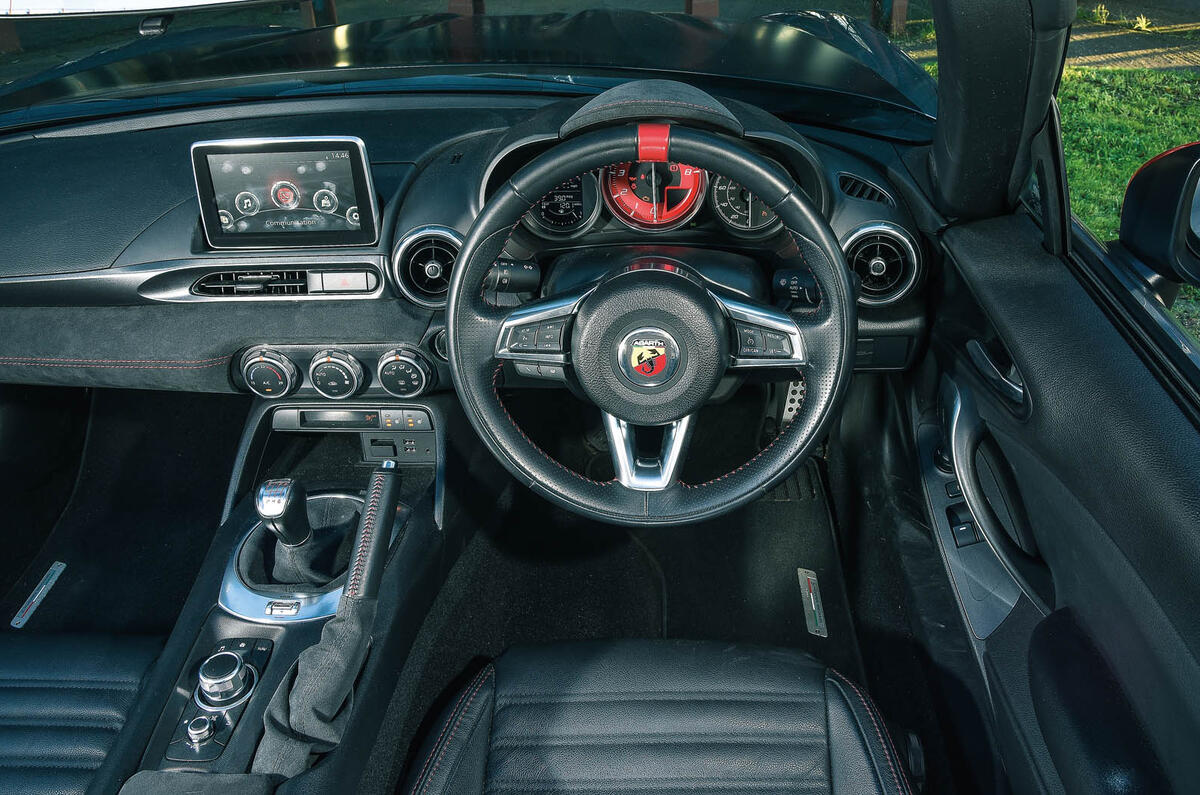
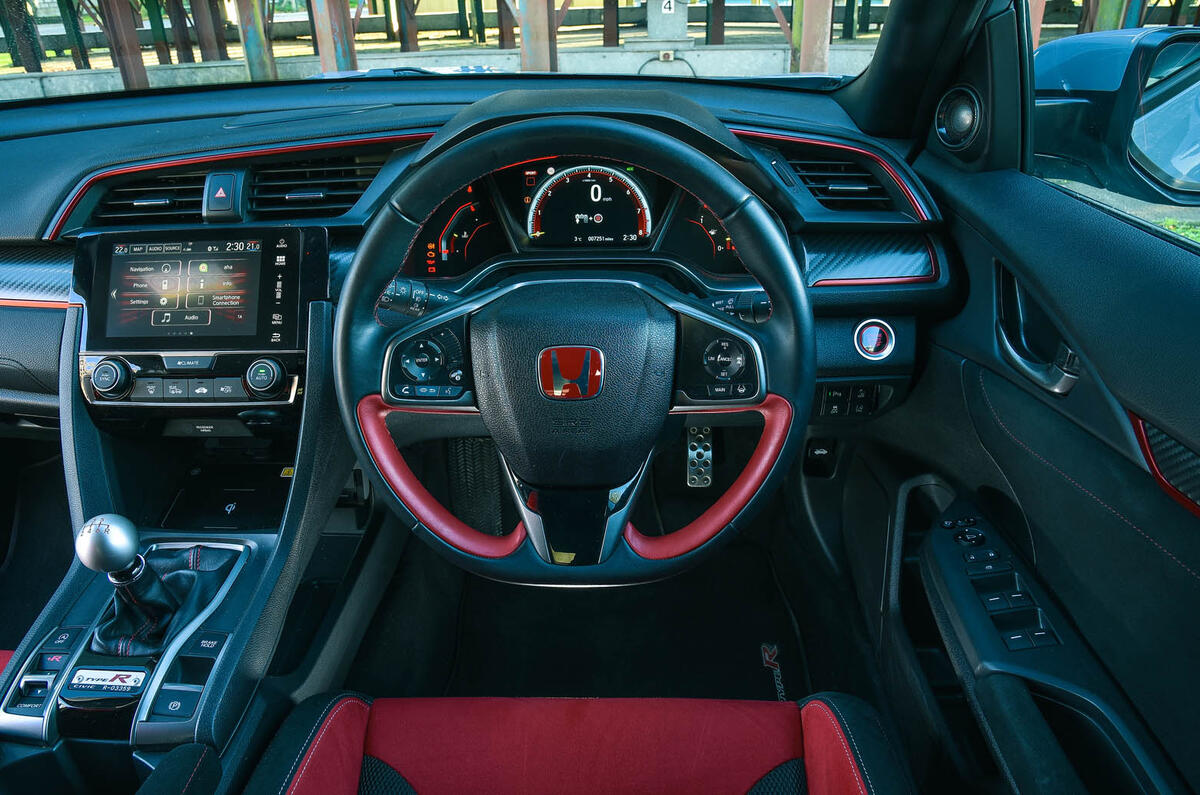
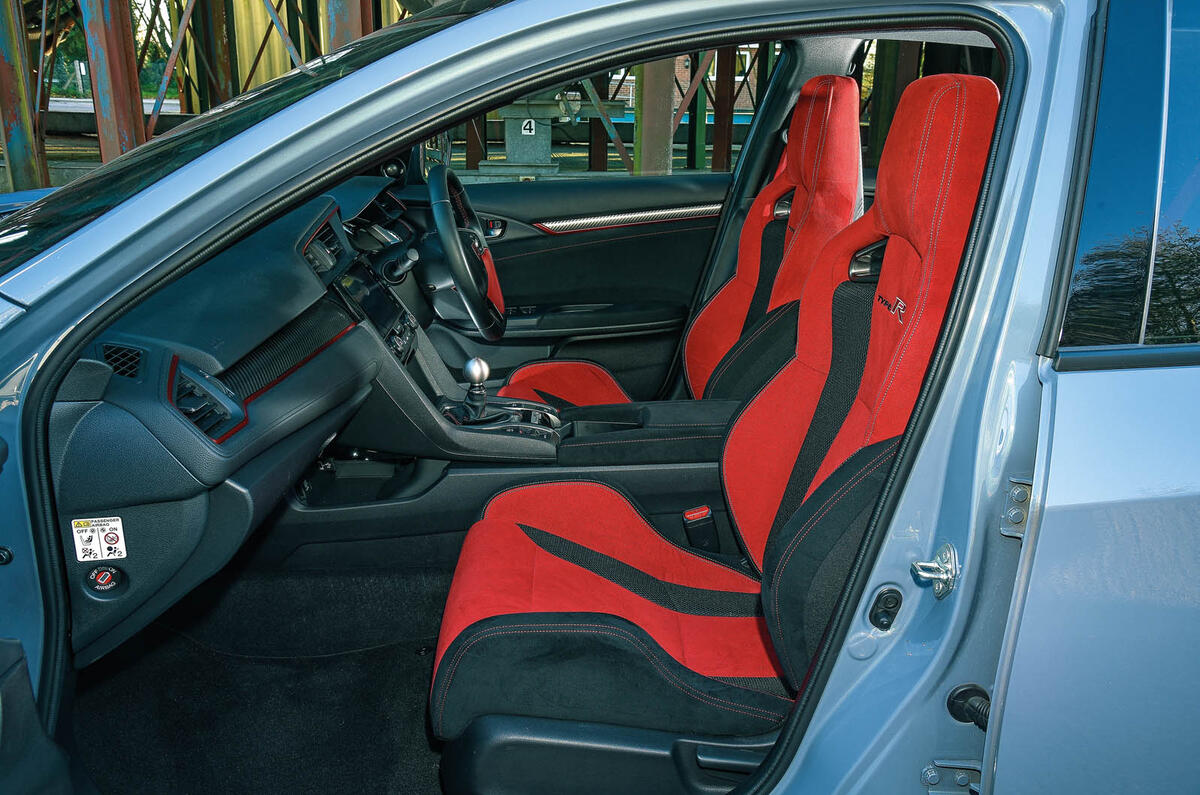





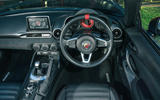
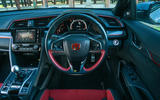
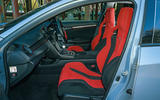

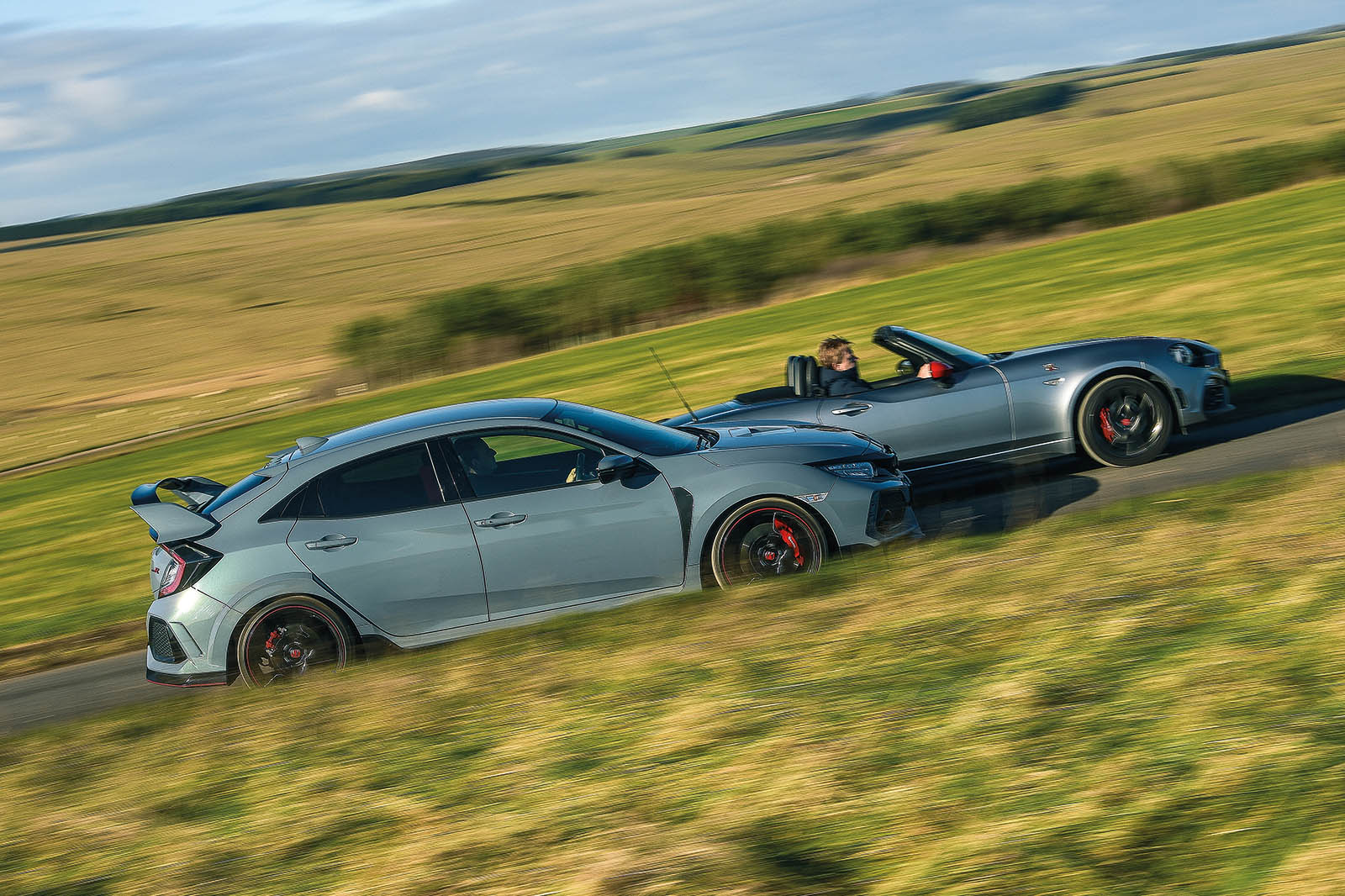
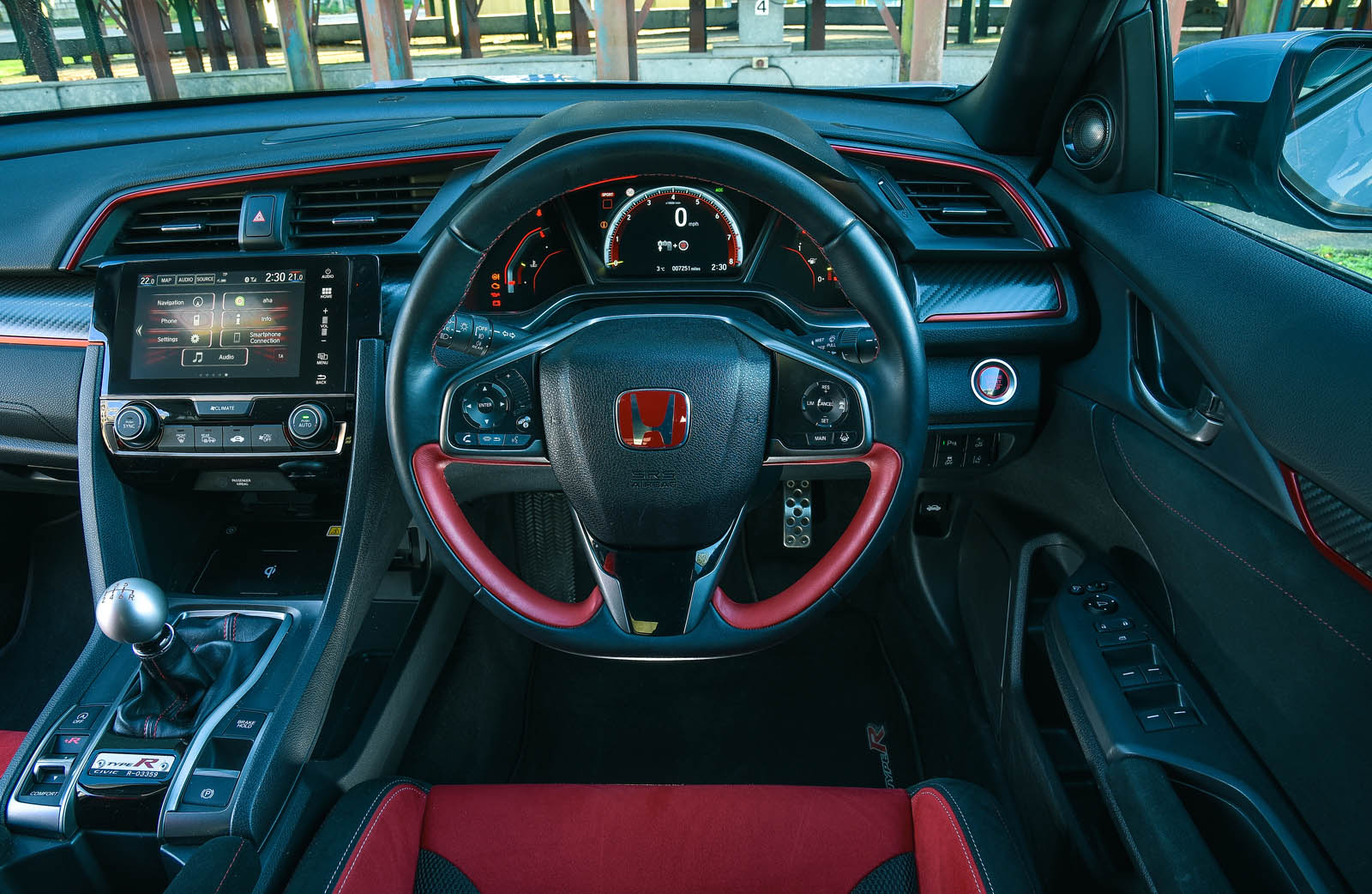
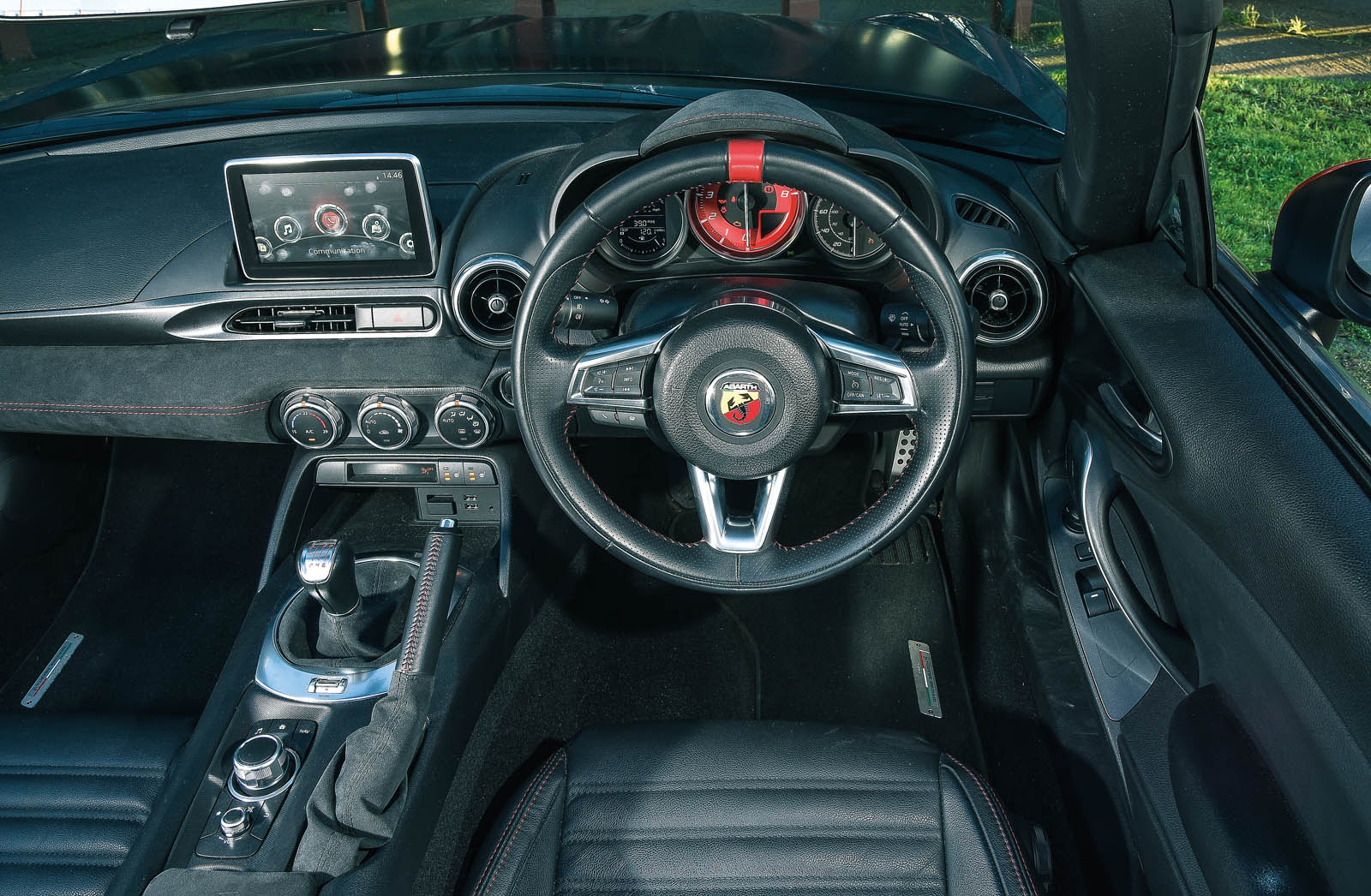
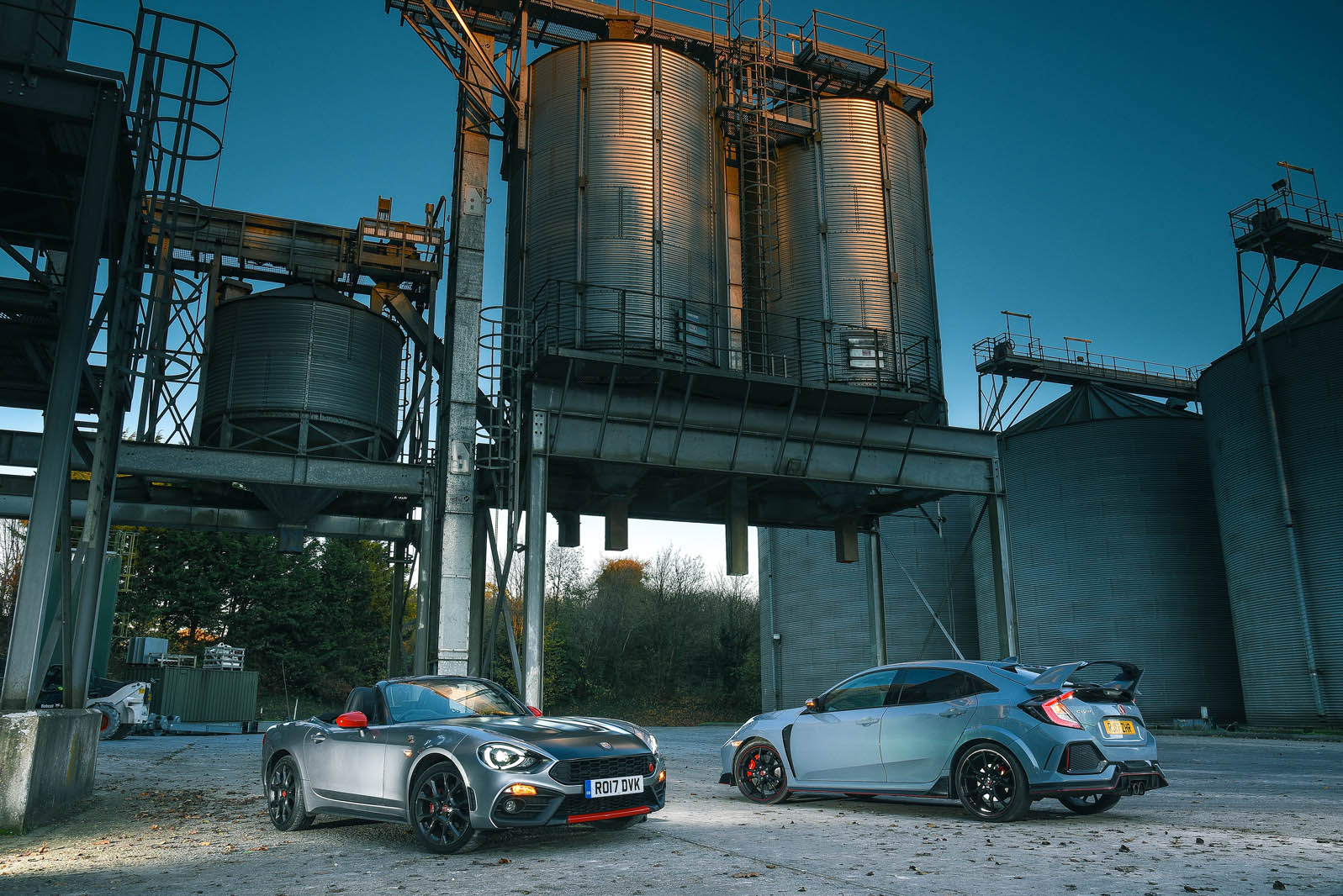

Join the debate
Add your comment
Can seat 5 at a push
Summer time special
Wonder if the result would have been different if they were driving from Monoco to Naples in the summer.
The Honda is simply
The Honda is simply embarrassing. With all those spoilers looks like a boy racers car. It's oriented for young people and with a price tag of 30k is far off budget for most of them. I would take the golf R any day